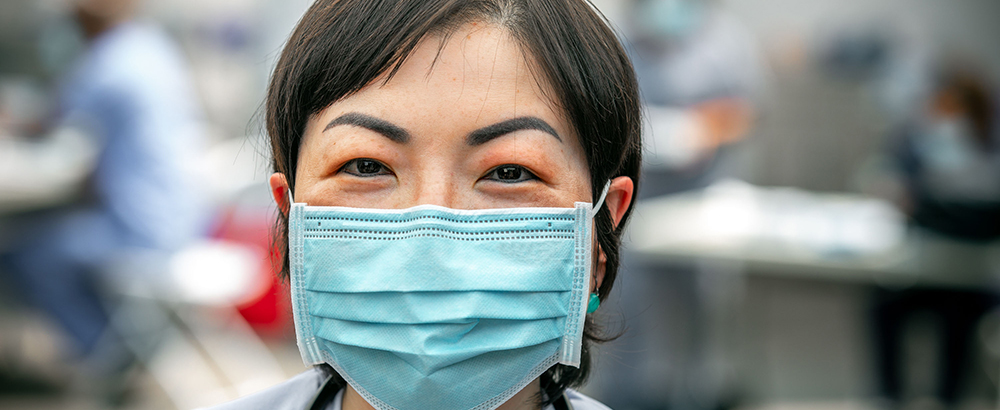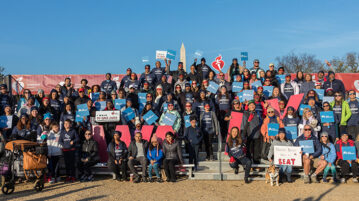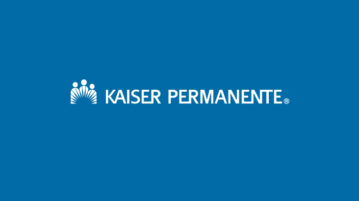Kaiser Permanente announces $300,000 in grants to support Asian Americans, Native Hawaiians and Pacific Islanders following surge of hate incidents.
To help counter the surge in discrimination and racially motivated violence against Asian Americans and people of Asian descent, Kaiser Permanente has awarded three community-based organizations grants totaling $300,000 to stop anti-Asian hate and violence in the Mid-Atlantic region.
The grants are part of a Kaiser Permanente’ Stop Anti-Asian Hate and Violence Initiative that began in response to the rising physical abuse and harmful sentiment against Asians and Asian Americans since the start of the COVID-19 pandemic. The initiative supports three strategies aimed at preventing further racist acts, providing interventions, and promoting healing. These strategies include community education, mobilization, and coalition-building; direct services, mental health, and organizational sustainability; and advocacy and organizational leadership.
“Our mission is to improve the health of the communities we serve and that includes advancing racial equity” said Celeste James, executive director of Community Health at Kaiser Permanente. “Violence and racism take a toll on the physical, emotional, and mental health of victims and their collective communities. We’re proud to partner with the Asian American Pacific Islander community to address this disturbing increase in racially motivated attacks and promote healing.”
In partnership with Asian Americans Advancing Justice — AAJC, a national nonprofit organization in Washington, D.C., that advocates for the civil and human rights of Asian Americans and underserved allied communities, Kaiser Permanente has distributed $3.6 million in grants to a diverse set of 33 community-based organizations nationally.
In the Mid-Atlantic, Kaiser Permanente committed $100,000 each to three organizations to advance their work to counter hate crimes, hate incidents and discrimination.
- NAKASEC Virginia will engage Asian Americans in Virginia to develop community-based solutions, develop mental health support resources, and build cross-group solidarity across communities who also face identity-based violence.
- Asian Pacific American Institute for Congressional Studies (APAICS) will use grant funds to support a Racial Equity Fellow. The Fellow will research and analyze community-based recommendations along with key public policy initiatives that affect economic opportunity, structural racism and health equity. The fellow will also work toward advancing public policy and coalition building to address anti-Asian hate and violence.
- Asian Pacific American Legal Resource Center (APALRC) will promote awareness of anti-Asian hate, educate the Asian Pacific Islander community on combatting anti-Asian hate, provide legal assistance and support to victims of anti-Asian hate, and support the implementation of anti-Asian hate initiatives and policies on a local level.
Learn more about Kaiser Permanente’s national commitment and partnership with the AAJC to help end anti-Asian hate.
###
About Kaiser Permanente
Kaiser Permanente is committed to helping shape the future of health care. We are recognized as one of America’s leading health care providers and not-for-profit health plans. Founded in 1945, Kaiser Permanente has a mission to provide high-quality, affordable health care services and to improve the health of our members and the communities we serve. We currently serve almost 12.5 million members in 8 states and the District of Columbia. Care for members and patients is focused on their total health and guided by their personal Permanente Medical Group physicians, specialists, and team of caregivers. Our expert and caring medical teams are empowered and supported by industry-leading technology advances and tools for health promotion, disease prevention, state-of-the-art care delivery, and world-class chronic disease management. Kaiser Permanente is dedicated to care innovations, clinical research, health




